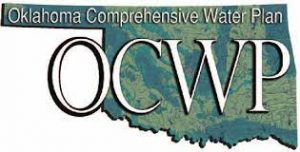
The Oklahoma Water Resources Board is preparing for a second round of public meetings in December as it works on development of a statewide comprehensive water plan.
A series of in-person meetings was held in August in Altus, Ada, Claremore, Woodward and Oklahoma City along with two virtual meetings, with local officials and water-minded citizens to provide an overview of the OCWP process and converse on local water challenges, opportunities, and information the OCWP can provide to support their needs and efforts.
In a newsletter for the Oklahoma Comprehensive Water Plan, some of the recommendations that came out of the meetings were reviewed.
(Click here to see presentation slides.)
While water challenges clearly vary across the state, a few common themes emerged. Examples include:
▪ Take steps to increase the public’s understanding of the Value of Water, in terms of the true cost of delivering and treating water and the cost of hiring and retaining critical water professionals, and water as an economic driver in many communities.
▪ Increase funding — with a preference toward grants or cost sharing, as well as using multiple funding sources and/or funding partners — is needed to support a variety of activities including: regional planning, water management district formation and/or activities, infrastructure projects (especially in small communities), and that funding should encourage/require/support better water management practices.
▪ Improve the accuracy of water use reporting, faster follow up when complaints are submitted, improved groundwater protection, and coordination with other state and federal agencies related to water quality protection.
▪ Provide information on impacts of weather variability, impacts of anticipated and/or new water regulations (such as PFAS, lead and copper service lines, etc.), and best water management practices for things like water rate structures, conservation programs, etc. that may impact Oklahomans.
▪ Enhance knowledge-sharing activities across the water industry is critical for all water-related professions to capitalize on lessons learned by their colleagues and serve as an inspiration to improve water management practices
Round 2 meetings this December (TBA) will take a deeper look at several of these issues.
(Click here to see presentation slides.)






